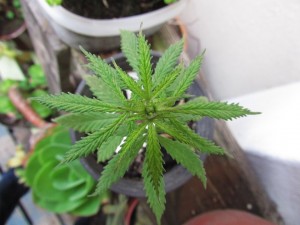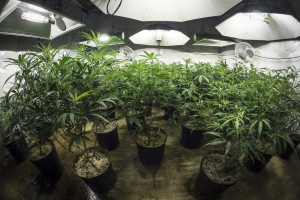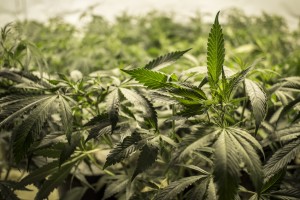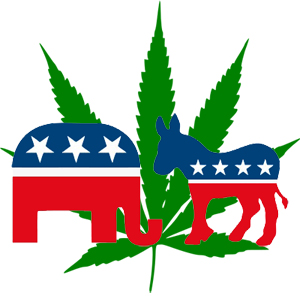 It isn’t just U.S. states that are ready to jump on board – if they haven’t already – with legalizing marijuana. Legislators in the Commonwealth of the Northern Mariana Islands (CNMI), a U.S. territory, recently approved a bill to legalize marijuana.
It isn’t just U.S. states that are ready to jump on board – if they haven’t already – with legalizing marijuana. Legislators in the Commonwealth of the Northern Mariana Islands (CNMI), a U.S. territory, recently approved a bill to legalize marijuana.
By a margin of 18-1, with just one abstention, the CNMI House of Representatives passed the legislation. This piece of legislation seeks to end cannabis prohibition for adults over 21 and creates a system of taxed and regulated sales. It would also welcome medical marijuana and industrial hemp.
This is not the first time that the territory pushed for legalization. In May, the Senate approved a similar marijuana legalization bill. The proposal initially cleared a committee in the House, but its advancement was later halted in response to procedural concerns. It was said that revenue-generating legislation must originate in the House.
As a result, House lawmakers made a few changes to the Senate bill and filed a new proposal of their own. This piece of legislation then won approval by the full chamber.
“The people of the CNMI recognize that the prohibition of marijuana has been terribly misguided and harmful, and our leaders are in touch with the public’s sentiment on this issue,” Lawrence Duponcheel of Sensible CNMI said in a statement.
“Today, members of the CNMI House of Representatives showed their commitment to honoring the will of the people.”
If this bill is successfully enacted, CNMI will become the first U.S. jurisdiction to go directly from outlawing marijuana across the board to allowing recreational use. This is very unique, considering that the territory has no existing medical cannabis program; this is something that has been a precursor to broader legalization in a growing number of states.
It will also be an important milestone because it would make CNMI the first to legalize a system of regulated cannabis production and sales through an act of lawmakers, rather than a ballot measure. (Vermont passed a law earlier this year to legalize marijuana possession and home cultivation, however, the policy does not allow for any form of cannabis commerce.)
Justin Strekal, political director for NORML, commented on marijuana reform’s growing popularity with voters in an interview, saying that “The lawmakers and people of CNMI are on track to make history, and more U.S. policymakers would be wise to take notice before the upcoming midterm elections.”
The next step? The CNMI Senate is now expected to take on the House-passed marijuana legalization bill. These changes have the potential to open up enormous opportunity. Are you hoping to expand your operation or launch your business venture? Consider working with the team at Marijuana Merchant Account and jump in on the expansion of the marijuana industry.


 Early this month, President Donald Trump shared that he was leaning towards supporting new bipartisan marijuana legislation – delivering a blow to Attorney General Jeff Sessions. U.S. Attorney General Jeff Sessions has been an outspoken opponent of marijuana. He lifted an Obama administration policy and freed federal prosecution to more aggressively pursue cases in states where marijuana has been legalized.
Early this month, President Donald Trump shared that he was leaning towards supporting new bipartisan marijuana legislation – delivering a blow to Attorney General Jeff Sessions. U.S. Attorney General Jeff Sessions has been an outspoken opponent of marijuana. He lifted an Obama administration policy and freed federal prosecution to more aggressively pursue cases in states where marijuana has been legalized. Up until a few years ago the only way to get recreational marijuana was illegally. This benefitted mostly the drug cartels – and honestly, who wants to do that? With the rise of states offering legalized recreational marijuana, the cartels are likely to take a hit – but how much? And will this help eradicate marijuana cartels?
Up until a few years ago the only way to get recreational marijuana was illegally. This benefitted mostly the drug cartels – and honestly, who wants to do that? With the rise of states offering legalized recreational marijuana, the cartels are likely to take a hit – but how much? And will this help eradicate marijuana cartels? With the ever-growing support for legalized medical and recreational marijuana, it is hard to fathom that some states may never legalize one or the other (or both). But, there are 14 states that may never do so. It isn’t the money, per se, but it has a lot to do with politics.
With the ever-growing support for legalized medical and recreational marijuana, it is hard to fathom that some states may never legalize one or the other (or both). But, there are 14 states that may never do so. It isn’t the money, per se, but it has a lot to do with politics. Vermont Governor, Peter Shumlin, called for the state to legalize marijuana through the legislative process, and not the ballot box. In his State address, the governor said that over 80,000 Vermonters reported using marijuana in 2015. This he claims is only making illegal drug dealers money that the state would use for the citizens. Gov. Shumlin suggested a move to begin step by step marijuana legislation to harness marijuana dollars.
Vermont Governor, Peter Shumlin, called for the state to legalize marijuana through the legislative process, and not the ballot box. In his State address, the governor said that over 80,000 Vermonters reported using marijuana in 2015. This he claims is only making illegal drug dealers money that the state would use for the citizens. Gov. Shumlin suggested a move to begin step by step marijuana legislation to harness marijuana dollars.
 While some in the media – and well-paid lobbyist – want to convince you that pot is evil, our police have a different take on the drug. The DEA released its annual survey of law enforcement officers from around the USA, and found that marijuana is the least of their drug worries. Literally, the least, as it came in last with only 6% of the surveyors saying that it was. While marijuana has never been at the top of the list, it was in the middle in the early to mid-2000s. While consumers have a relaxed view on pot, it’s interesting to see that it isn’t the biggest worry for police, and this could have an overwhelming effect on the government and its stance on the drug.
While some in the media – and well-paid lobbyist – want to convince you that pot is evil, our police have a different take on the drug. The DEA released its annual survey of law enforcement officers from around the USA, and found that marijuana is the least of their drug worries. Literally, the least, as it came in last with only 6% of the surveyors saying that it was. While marijuana has never been at the top of the list, it was in the middle in the early to mid-2000s. While consumers have a relaxed view on pot, it’s interesting to see that it isn’t the biggest worry for police, and this could have an overwhelming effect on the government and its stance on the drug. Senator Bernie Sanders from Vermont is pushing his fellow senators to legalize marijuana nationwide. While this isn’t a shock due to Senator Sanders views, it does show that the American people may be ready for a change. Sanders is rising in the polls in many states, and his message is coming across loud and clear. While the bill seems promising, there is a catch involved.
Senator Bernie Sanders from Vermont is pushing his fellow senators to legalize marijuana nationwide. While this isn’t a shock due to Senator Sanders views, it does show that the American people may be ready for a change. Sanders is rising in the polls in many states, and his message is coming across loud and clear. While the bill seems promising, there is a catch involved.


